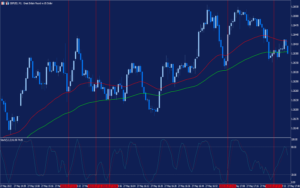Target maturity funds: An alternative to bank fixed deposits?
3 min read
When it comes to investing, safety and predictability of returns are two of the most important aspects that conservative investors look for. On the one hand, they want their investments to be safe and secure, while on the other hand, they don’t want to miss out on potential returns. This has often led to a dilemma amongst conservative investors looking to invest their money, should they opt for bank fixed deposits (FDs) or debt funds?
FDs provide safety of capital but are not very tax efficient, and debt funds may offer more potential returns but may not offer much predictability of returns. Is there an alternative option that provides both? Target maturity funds could be the answer.
What are target maturity funds
TMFs are debt mutual funds that invest in various fixed-income instruments such as corporate bonds, government securities, and state development loans. They have a predetermined investment objective and specified maturity date according to the underlying index. Rather than buying or selling securities as needed, they hold them until the end of the specified term. During this period, all interest payments received are reinvested into the fund. Upon maturity, investors get their money back along with any returns generated by the fund during its holding period.
For example, if you select a fund with a maturity of 2029, the fund manager will strategically invest in securities that have maturities as the fund itself.
Should you choose target maturity funds over fixed deposits? Points to understand
While both fixed deposits and target maturity funds can be suitable for different types of investors, there are certain additional benefits that come with TMFs that make them an attractive proposition.
Risk and returns
While FDs provide guaranteed returns, target maturity funds offer returns that are dependent on the underlying index. With FDs, your principal is entirely secure, and you get the predetermined interest rate on the invested amount at the end of your FD tenure.
TMFs may carry slightly more risk than fixed deposits since they are subject to interest rate risk. Despite this inherent risk, these mutual fund schemes still have the potential to offer higher potential returns because they invest in high-grade government securities and AAA corporate bonds which tend to yield more over time.
Liquidity
Fixed deposits require investors to wait until their term ends before they can access their money. Partial withdrawals are allowed, but not without financial repercussions. Target maturity funds have open-ended structure and can be redeemed at any point throughout their holding period. This makes them ideal for those who need regular access to their capital or want more flexibility with their investments.
Tax benefits
Target maturity funds and fixed deposits differ significantly in terms of tax implications. FD offers no indexation benefit and is treated asincome from other sources, meaning the interest earned is taxed as per your income tax slab, regardless of how long you stay invested. This can lead to a higher tax rate if you fall under a higher tax slab.
By contrast, if TMFs are held for more than three years, long-term capital gains are applicable at 20% with the benefit of indexation. This means that only gains over and above inflation will be taxed, thus significantly reducing your overall taxation liability.
To wrap up
With visibility of returns, tax efficiency, high safety and transparency as its key features, target maturity funds help to bridge the gap between open ended debt mutual funds and fixed deposits. They can be a good alternative to bank fixed deposits, provided that you understand the risks associated and hold the investment until its maturity date.
Before investing, it is wise to conduct thorough research on the fund’s investment strategy, performance history, fees and charges, liquidity risks, and other parameters. Additionally, seeking professional advice from a certified financial advisor can further help you create an optimised mutual fund portfolio that takes into account your goals and risk tolerance.







